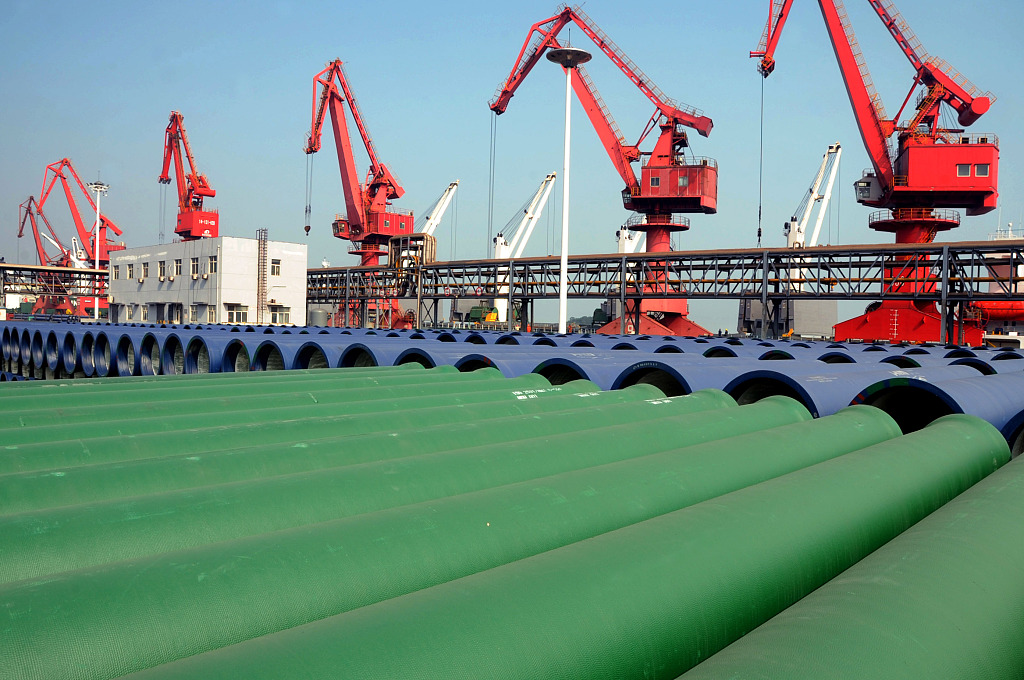KUALA LUMPUR, Sept. 4 (Xinhua) -- Malaysia's exports rose 1.7 percent year-on-year to 87.96 billion ringgit (about 20.88 billion U.S. dollars) in July, contributed mainly by higher exports to its trading partners including the United States, China and Singapore, official data showed Wednesday.
Malaysia International Trade and Industry Ministry said in a statement that Malaysia's exports to China expanded by 3.8 percent year-on-year to 13.34 billion ringgit (about 3.17 billion U.S. dollars) in July on higher exports of manufactures of metal, petroleum products and Liquefied Natural Gas (LNG).
Trade with China which represented 17.6 percent of Malaysia's total trade, also rose 0.2 percent to 28.5 billion ringgit (about 6.77 billion U.S. dollars) in the month.

(Photo: VCG)
Total trade for the month fell 1.9 percent year-on-year to 161.65 billion ringgit with imports contracted 5.9 percent to 73.69 billion ringgit (about 17.5 billion U.S. dollars). This led the trade surplus surging 75.6 percent to 14.27 billion ringgit (about 3.39 billion U.S. dollars).
For the first seven months, total trade declined by 1.4 percent year-on-year to 1.057 trillion ringgit (about 0.25 trillion U.S. dollars). Exports and imports slipped by 0.4 percent and 2.6 percent to 569.46 billion ringgit (about 135 billion U.S. dollars) and 487.84 billion ringgit (about 116 billion U.S. dollars) respectively.
Malaysia's exports to China for the first seven months grew 0.3 percent to 77.47 billion ringgit (about 18.4 billion U.S. dollars), backed by higher exports of LNG, chemicals and chemical products, iron and steel products as well as paper and pulp products.
Despite Malaysia's exports return to positive territory in July from a negative growth of 3.1 percent in June, economists remain cautious on the trade outlook amid global trade tensions.
MIDF Research said in a note Wednesday that it revised down its full year exports growth forecast for Malaysia to 1.7 percent, from its earlier estimate of 3.6 percent.
"With faltering trade globally derive from rising protectionism and loss of momentum in some major economies, especially in Europe, we do not foresee a huge comeback in the second half," the research house said.


